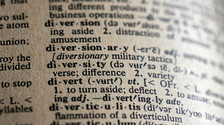Elena
整 and 全, what's the difference?
And if there isn't any difference, which one is more often used?
Thanks!
14 Thg 10 2011 09:50
Câu trả lời · 9
1
I think,that "整" always used to appear with "个". “整个”and"全" all likely mean "whole , all over..." .
Example:整个世界=全世界 ,整个学校=全校/全学校
整 is more to describe a whole situation,but not a single thing. may be like the following example.
"the whole body" will be said as 全身. No one would use "整身". When you just like to use 整 ,you have only to say it as “整个身体”.
meanwhile,整 can also be a verb -- 整理. Than it means to make something in order or clean.
Example: clean up the room = 整理房间
hope they will help you to understand these two single words.:D
14 tháng 10 năm 2011
this is the same, i think there is no different special. in different environment We use a different phrase match. for example, 全部 and 整个, quanbu can be used to a lot of peoples, 全部人都来了. we can't say: 整个人都来了, ils wrong beucause one people can't be half one.
15 tháng 10 năm 2011
全:pure jade -> complete.
整:tidy and in good order -> without extra part -> just a whole one.
They may have the samilar meaning.
Nowadays, 全 used more often than 整.
14 tháng 10 năm 2011
完整,全部
14 tháng 10 năm 2011
完整:强调的是整体,系统。
全部:强调的是数量。
应用不同
14 tháng 10 năm 2011
Hiển thị thêm
Bạn vẫn không tìm thấy được các câu trả lời cho mình?
Hãy viết xuống các câu hỏi của bạn và để cho người bản xứ giúp bạn!
Elena
Kỹ năng ngôn ngữ
Tiếng Anh, Tiếng Pháp, Tiếng Đức, Tiếng Ý, Tiếng Luxembourg
Ngôn ngữ đang học
Tiếng Đức, Tiếng Luxembourg
Bài viết Bạn Có lẽ Cũng Thích

Top 6 Mistakes to Avoid with Vocabulary Acquisition
48 lượt thích · 14 Bình luận

Navigating Your First Job: Do's and Don'ts in the Workplace
47 lượt thích · 21 Bình luận

What Content to Watch to Acquire Advanced-level Proficiency
82 lượt thích · 51 Bình luận
Thêm bài viết
